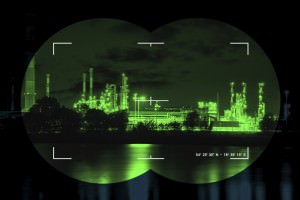FBI Counterterrorism
 Combating terrorism—conducting FBI Counterterrorism investigations—is the FBI’s number one investigative priority. Extremists who threaten violence attempting to advance a political, religious, racial, or social agenda are considered a serious threat to the nation’s security. As a general rule, these investigations are supervised by the FBI Counterterrorism Division at FBI Headquarters.
Combating terrorism—conducting FBI Counterterrorism investigations—is the FBI’s number one investigative priority. Extremists who threaten violence attempting to advance a political, religious, racial, or social agenda are considered a serious threat to the nation’s security. As a general rule, these investigations are supervised by the FBI Counterterrorism Division at FBI Headquarters.
Attempting to understand and eliminate existing and emerging threats to the country’s security, the FBI uses its intelligence capabilities and time-tested skills to conduct FBI Counterterrorism investigations. The FBI also shares information with its international partners and provides strategic and operational threat analysis “not” only to the intelligence community, but policy makers conducting FBI Counterterrorism investigations.
FBI Counterterrorism investigations are an extremely important to the Bureau’s daily mission. Agents assigned FBI Counterterrorism duties now integrate overseas inquiries with local investigations conducted at the field level, providing “not” only information, but direction and resources, including “fly teams” to investigate terrorism incidents.
Today, the Bureau’s primary focus in FBI Counterterrorism is prevention—detecting, disrupting and dismantling terrorist plots before they can happen. Agents and Analysts are instructed to make arrests whenever they can—stopping terrorists at every level—investigating and prosecuting supporters and terrorists alike, e.g. an international financier bankrolling jihadis targeting a subway system.
In an effort to keep terrorists off U.S. shores, the FBI has posted agents overseas in 64 embassies and consulates and established 104 Joint Terrorism Task Forces located throughout the country—all staffed by federal, state, and local law enforcement officials. Each task force is supported by the National Joint Terrorism Task Force located in Washington, D.C. whose members include 48 separate government agencies and various important industry groups vital to the country’s security. And aside from playing a central role in the National Counterterrorism Center, the FBI also leads the Terrorist Screening Center and the Foreign Terrorist Tracking Task Force, and supports dozens of state and local terrorism fusion centers located throughout the country, also considered vital to the country’s security and many other joint initiatives.[1]
__________________________________________
Directory members can be extremely helpful to persons seeking information and/or wanting a professional opinion concerning the Government’s efforts concerning FBI Counterterrorism. Looking for an expert and/or investigator concerning FBI Counterterrorism, interested individuals need only use the website’s search feature, entering the appropriate skill and geographical area being sought, to locate a Bureau specialist, and thereafter make contact, using the information provided.
__________________________________________
Retired FBI Agents and Analysts with a background in FBI Counterterrorism, interested in securing a Directory listing and/or a personal email address, need only submit a brief online application to join the website.
1 Information contained herein was taken from publication captioned, “TODAY’s FBI: FACTs & FIGURES 2013 – 2014,” issued by the U.S. Department of Justice, FBI, Office of Public Affairs, 935 Pennsylvania Avenue NW, Washington, D.C. 20535, pages 34-35.
Agents with FBI Counterterrorism skillset
- Keith D. Tolhurst
- Jeffrey A. Danik
- Philip Guy Bodenhorn
- Dennis J. Franks
- Peter D. Yachmetz
- Paul J. Wiegartner, Jr.
- Todd K. Hulsey
- Thomas W. Raftery III
- James K. Ellis, CFE
- Edward C. Shaw
- Myron R. Fuller, CFE, FSO, FIO
- Thomas J Baker
- James J Wedick
- Louis F. Bertram
- Robert (Bobby) Chacon
- Chris J. Quick
- Gregory M. Vecchi, Ph.D.
